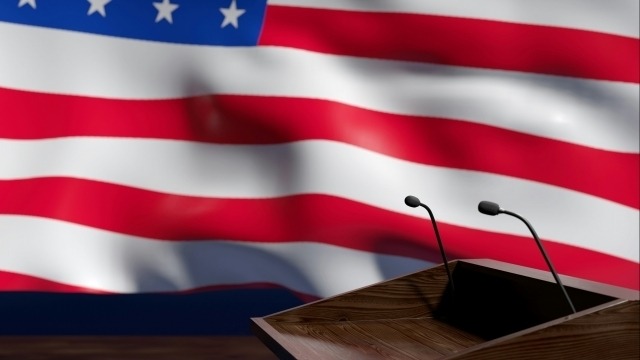Analysis: Bizarre debate puts epic question to US: Vengeance or the unknown

By Mark Kenny
A version of this article was originally published by The Canberra Times.
As a divided country sweated on the split-screen visuals of a fateful presidential debate, the world watched with an unsettling mixture of disbelief, horror and hope.
On the 23rd anniversary of contemporary America's worst day, the only scheduled debate between a vengeful former president and an untried Democratic newby invited an epic question: whether to push forward or to double-down. To step up to the future or lash out at migrants and minorities. At liberals and internationalists, feminists and greenies.
Whether to strive for an expansive America or to huddle against the "masses yearning to breathe free, the wretched refuse of your teeming shore" as the Statue of Liberty haughtily beseeches.
As always, the victory verdict depends on personal predilection and on the debate's ultimate impact in a tight election race. That remains frustratingly unknowable.
This head-to-head came months after the original debate had left no doubt.
Incumbent president, Joe Biden had crashed and burned leaving Donald Trump, election denier, felon and narcissist, ascendant.
If debate number one was bizarre for matching two unfeasibly old men, both seeking a risky second term, this Philadelphia talkfest was bizarreness squared.
It pitted a pre-sentencing ex-president using racial fear and misogyny against an untried black female liberal urging optimism, tolerance, and a chance to "turn the page".
This would be Trump's seventh presidential debate, but Harris's first. Her debut task? To avert another rancorous Trump term.
As the Washington Post editor Ben Bradlee said to his Watergate reporters in All the President's Men, "We're under a lot of pressure, you know, and you put us there. Nothing's riding on this except ... maybe the future of the country."
But it turned out that Kamala Harris was driving Donald Trump's "Karma Bus" and it ran straight over him.
Where Biden had bumbled, Harris harried. Trump turned in the most disciplined performance of any of his debates - evidence that his handlers knew he was up against a keen and organised intellect. Still, he was outclassed.
She needled him on a woman's right to choose, pegged him on his bloated business record, riled him by calling out his "biggest ever" crowd boasts, and his scoffed at his kooky admiration for "the late great Hannibal Lecter". She said he would only end the Russia-Ukraine war by capitulating to Putin. It rang true. He said America had gone to hell.
ABC America's split-screen worked to her advantage because she made it work. As she dissected his reckless trade policy and mishandled COVID response - Trump glowered, his upper lip glistening Nixon-style, his plastered face sagging over his shirt collar like moistened muffin crust.
When he spoke, calling her ridiculous, deceitful and more, it was Harris who used the passive camera shot better, her face conveying mirth and incredulity at his childish antics, his frat-boy skites and braggadocio.
These observations, of course, are made with Australian eyes and ears.
Americans are the ones to decide, even if the world cares enormously.
Mark Kenny is the Director of the ANU Australian Studies Institute and host of the Democracy Sausage podcast.








